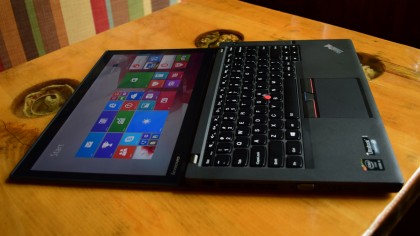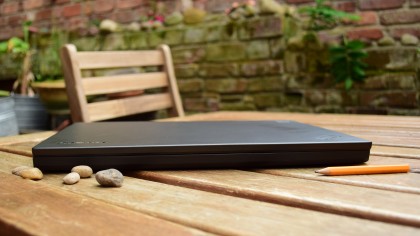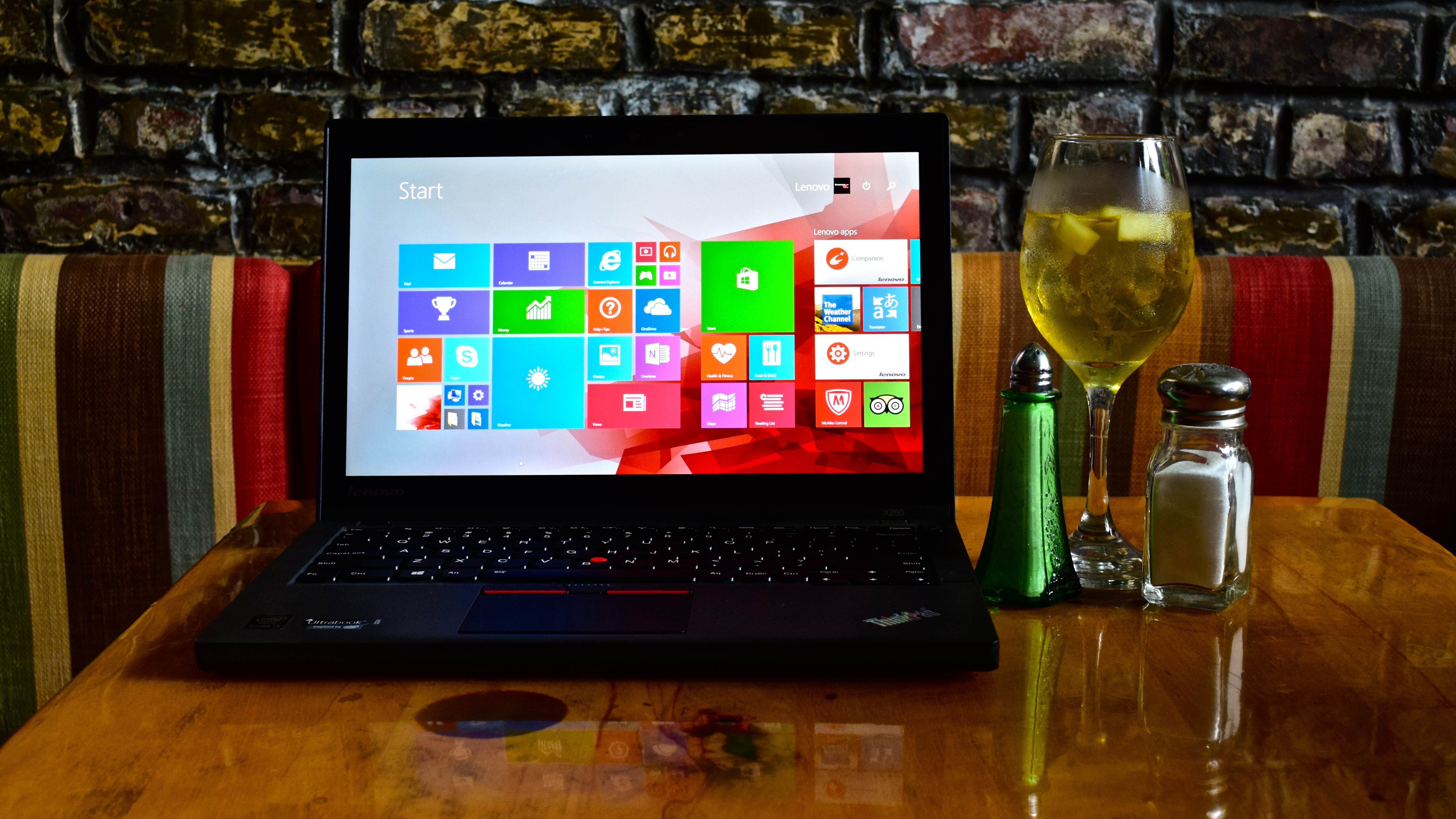TechRadar Verdict
You'd be better off buying a high-end consumer Ultrabook than purchasing the X250. It doesn't perform exceptionally well and it isn't pretty, but it has lots of ports and a hot-swappable battery.
Pros
- +
Lightweight design
- +
Plenty of ports
- +
Hot-swappable battery
Cons
- -
Middle-of-the-pack performance
- -
Boring design
Why you can trust TechRadar
Lenovo's ThinkPad X250 (starting at $755, £669.99, AU$1,499) is an Ultrabook designed for people who want business-class power without having to lug around a chunky workstation.
This 12.5-inch (31.75 cm), 2.88-pound (1.27 kg) laptop can be customized to include up to a full HD, touchscreen display, a fifth generation Intel Core i7 processor and 256GB of solid-state, Opal 2 storage. The notebook is military specifications approved, features a fingerprint reader and its battery can be swapped for a replacement without having to power down.
Despite these enterprise-friendly features, the ThinkPad X250 is best compared to consumer Ultrabooks, like the the Dell XPS 13 (starting at $799, £520, AU$980), and the Asus Zenbook UX305 (starting at $699, £649, AU$902). The best business-class comparison is the Lenovo ThinkPad X1 Carbon (starting at $1,249, £1,150, AU$1,433).
You wouldn't want to stack the X250 up against enterprise workhorses, like the HP ZBook 17 G2 ($1,900, £1,250, AU$2,400) or the Lenovo ThinkPad W540 ($2,573, £1,606, AU$2,946). Those devices blow the X250 out of the water in terms of performance, but they're much heavier, much thicker and much more expensive.
So, you've got to decide: do you want a laptop primarily designed for work, or do you want something that is portable and can handle basic business functions? If you chose the latter, the X250 might be right for you. But, in the face of lighter, thinner and more stylish consumer Ultrabooks, maybe not.
Design
I've written ad nauseum about the signature ThinkPad design, which basically hasn't changed since the line was born in 1992. The X250 is built with a black, carbon fiber chassis that is unremarkable in every way.
Lenovo advertises the carbon fiber as the same material used on racecars, which means it is light and more shock absorbent than the magnesium alloy or plastic found on mainstream laptops. As I've said in the past, ThinkPad laptops aren't ugly – they're vanilla. Even the X1 Carbon – the belle of the ThinkPad ball – wouldn't stand out if you saw a lineup of Ultrabooks at your local Best Buy.

The X250 measures 12.03 inches (30 cm) long by 0.8 inches (2 cm) thick. This is pretty slim compared to mobile workstations, but when you stack it up against the XPS 13, which is only 11.98 inches wide and 0.6 inches (15mm) thick, you can clearly go thinner. To be fair, the Asus Zenbook is one inch wider and one inch thicker than the XPS 13, so the difference between the Zenbook and the X250 are negligible.
At 2.88 pounds (without a touchscreen), the X250 is one of the lightest Ultrabooks on the market. The standard, full HD Dell XPS 13 weighs only 2.6 pounds (1.17kg), and the 13-inch Asus Zenbook weighs 2.65 pounds (1.18kg). In terms of portability, this is a nice bracket in which to fall. Of course, none of these laptops holds a candle to the problematic, but featherweight Lenovo La Vie Z (starting at $1,299, £852, AU$1,605), which weighs only 1.72 pounds (0.78kg).
The top of the device is adorned with Lenovo's standard ThinkPad logo with accompanying light-up lowercase letter "i," and a shiny silver Lenovo logo. The laptop folds via two minute, pinless steel hinges that are among the best on the market. The laptop folds easily and smoothly, while maintaining a semblance of stability that constantly on-the-go business users will appreciate.
The bottom of the device features several unambiguous vents that are positioned in no discernable pattern. Here, you'll also find the easily replaceable battery that pulls out via two slide buttons.

Unlike magnesium alloy and plastic, the X250's carbon fiber doesn't get oily or dusty at all. After a week of intense usage, I didn't see one fingerprint. Unlike old MacBook Pros that scald the base of your palms when you type, I never felt any heat coming from the laptop whatsoever.
The full HD (1,920 x 1,080) touchscreen is pretty standard these days. If screens are your thing, then you'll definitely want to go with the XPS 13, with its Infinity Design and WQHD+ display. But if you're satisfied with run-of-the-mill displays, the X250 is solid enough for video watching and/or spreadsheet filling. You can bend the display back 180-degrees, so that the laptop can be used in laptop or display mode, but I highly doubt you'll ever want to do this.
The spill resistant keyboard sports Lenovo's signature AccuType curved keys, of which I'm not a fan. Nor am I too fond of the three buttons at the top of the Clickpad, which – as I've noted in other reviews – just get in my way.
